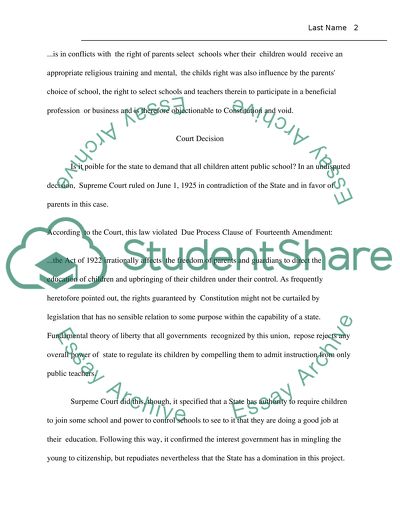Cite this document
(“Pierce v. Society of Sisters Research Paper Example | Topics and Well Written Essays - 2750 words”, n.d.)
Pierce v. Society of Sisters Research Paper Example | Topics and Well Written Essays - 2750 words. Retrieved from https://studentshare.org/history/1464032-pierce-v-society-of-sisters
Pierce v. Society of Sisters Research Paper Example | Topics and Well Written Essays - 2750 words. Retrieved from https://studentshare.org/history/1464032-pierce-v-society-of-sisters
(Pierce V. Society of Sisters Research Paper Example | Topics and Well Written Essays - 2750 Words)
Pierce V. Society of Sisters Research Paper Example | Topics and Well Written Essays - 2750 Words. https://studentshare.org/history/1464032-pierce-v-society-of-sisters.
Pierce V. Society of Sisters Research Paper Example | Topics and Well Written Essays - 2750 Words. https://studentshare.org/history/1464032-pierce-v-society-of-sisters.
“Pierce V. Society of Sisters Research Paper Example | Topics and Well Written Essays - 2750 Words”, n.d. https://studentshare.org/history/1464032-pierce-v-society-of-sisters.


